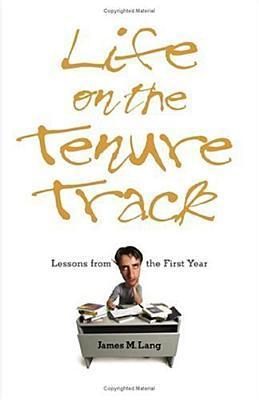
Life 3.0: Being Human in the Age of Artificial Intelligence
by Max Tegmark
30 popular highlights from this book
Key Insights & Memorable Quotes
Below are the most popular and impactful highlights and quotes from Life 3.0: Being Human in the Age of Artificial Intelligence:
Your synapses store all your knowledge and skills as roughly 100 terabytes’ worth of information, while your DNA stores merely about a gigabyte, barely enough to store a single movie download.
… when people ask about the meaning of life as if it were the job of our cosmos to give meaning to our existence, they’re getting it backward: It’s not our Universe giving meaning to conscious beings, but conscious beings giving meaning to our Universe.
If consciousness is the way that information feels when it’s processed in certain ways, then it must be substrate-independent; it’s only the structure of the information processing that matters, not the structure of the matter doing the information processing. In other words, consciousness is substrate-independent twice over!
computer scientists call validation: whereas verification asks “Did I build the system right?,” validation asks “Did I build the right system?
If we don't know what we want we're less likely to get it.
We invented fire, repeatedly messed up, and then invented the fire extinguisher, fire exit, fire alarm and fire department.
Life 1.0”: life where both the hardware and software are evolved rather than designed. You and I, on the other hand, are examples of “Life 2.0”: life whose hardware is evolved, but whose software is largely designed. By your software, I mean all the algorithms and knowledge that you use to process the information from your senses and decide what to do—everything from the ability to recognize your friends when you see them to your ability to walk, read, write, calculate, sing and tell jokes.
let’s instead define life very broadly, simply as a process that can retain its complexity and replicate.
The more automated society gets and the more powerful the attacking AI becomes, the more devastating cyberwarfare can be. If you can hack and crash your enemy’s self-driving cars, auto-piloted planes, nuclear reactors, industrial robots, communication systems, financial systems and power grids, then you can effectively crash his economy and cripple his defenses. If you can hack some of his weapons systems as well, even better.
a hallmark of a living system is that it maintains or reduces its entropy by increasing the entropy around it. In other words, the second law of thermodynamics has a life loophole: although the total entropy must increase, it’s allowed to decrease in some places as long as it increases even more elsewhere. So life maintains or increases its complexity by making its environment messier.
Since there can be no meaning without consciousness, it’s not our Universe giving meaning to conscious beings, but conscious beings giving meaning to our Universe.
The Matrix, Agent Smith (an AI) articulates this sentiment: “Every mammal on this planet instinctively develops a natural equilibrium with the surrounding environment but you humans do not. You move to an area and you multiply and multiply until every natural resource is consumed and the only way you can survive is to spread to another area. There is another organism on this planet that follows the same pattern. Do you know what it is? A virus. Human beings are a disease, a cancer of this planet. You are a plague and we are the cure.
In other words, we can think of life as a self-replicating information-processing system whose information (software) determines both its behavior and the blueprints for its hardware.
I’m encouraging mine to go into professions that machines are currently bad at, and therefore seem unlikely to get automated in the near future. Recent forecasts for when various jobs will get taken over by machines identify several useful questions to ask about a career before deciding to educate oneself for it. 48 For example: • Does it require interacting with people and using social intelligence? • Does it involve creativity and coming up with clever solutions? • Does it require working in an unpredictable environment?
The DQN AI system of Google DeepMind can accomplish a slightly broader range of goals: it can play dozens of different vintage Atari computer games at human level or better. In contrast, human intelligence is thus far uniquely broad, able to master a dazzling panoply of skills.A healthy child given enough training time can get fairly good not only at any game, but also at any language, sport or vocation. Comparing the intelligence of humans and machines today, we humans win hands-down on breadth, while machines outperform us in a small but growing number of narrow domains, as illustrated in figure 2.1. The holy grail AI research is to build “general AI” (better known as artificial general intelligence, AGI) that is maximally broad: able to accomplish virtually any goal, including learning.
In his 2007 book Farewell to Alms, the Scottish-American economist Gregory Clark points out that we can learn a thing or two about our future job prospects by comparing notes with our equine friends. Imagine two horses looking at an early automobile in the year 1900 and pondering their future. “I’m worried about technological unemployment.” “Neigh, neigh, don’t be a Luddite: our ancestors said the same thing when steam engines took our industry jobs and trains took our jobs pulling stage coaches. But we have more jobs than ever today, and they’re better too: I’d much rather pull a light carriage through town than spend all day walking in circles to power a stupid mine-shaft pump.” “But what if this internal combustion engine thing really takes off?” “I’m sure there’ll be new new jobs for horses that we haven’t yet imagined. That’s what’s always happened before, like with the invention of the wheel and the plow.
I think of this as the techno-skeptic position, eloquently articulated by Andrew Ng: “Fearing a rise of killer robots is like worrying about overpopulation on Mars.
The saddest aspect of life right now is that science gathers knowledge faster than society gathers wisdom. Isaac Asimov
The robot misconception is related to the myth that machines can’t control humans. Intelligence enables control: humans control tigers not because we’re stronger, but because we’re smarter. This means that if we cede our position as smartest on our planet, it’s possible that we might also cede control.
If you're driving down a highway at fifty-five miles per hour and suddenly see a squirrel a few meters in front of you, it's too late for you to do anything about it, because you've already run it over! ...your consciousness lives in the past
Will life in our Universe fulfill its potential or squander it? This depends to a great extent on what we humans alive today do during our lifetime, and I’m optimistic that we can make the future of life truly awesome if we make the right choices.
This ability of Life 2.0 to design its software enables it to be much smarter than Life 1.0
It's not our universe giving meaning to conscious beings, but conscious beings giving meaning to our universe
Advancing computer performance is like water slowly flooding the landscape. A half century ago it began to drown the lowlands, driving out human calculators and record clerks, but leaving most of us dry. Now the flood has reached the foothills, and our outposts there are contemplating retreat. We feel safe on our peaks, but, at the present rate, those too will be submerged within another half century. I propose that we build Arks as that day nears, and adopt a seafaring life!
Elon Musk argued that what we need right now from governments isn’t oversight but insight: specifically, technically capable people in government positions who can monitor AI’s progress and steer it if warranted down the road.
Suppose that humanity flourishes thanks to the enslaved-god AI. Would this be ethical? If the AI has subjective conscious experiences, then would it feel that “life is suffering,” as Buddha put it, and it was doomed to a frustrating eternity of obeying the whims of inferior intellects? After all, the AI “boxing” we explored in the previous chapter could also be called “imprisonment in solitary confinement.” Nick Bostrom terms it mind crime to make a conscious AI suffer.4 The “White Christmas” episode of the Black Mirror TV series gives a great example. Indeed, the TV series Westworld features humans torturing and murdering AIs without moral qualms even when they inhabit human-like bodies.
Hydrogen…, given enough time, turns into people. Edward Robert Harrison, 1995
measurements, so please let me take a few minutes to summarize 13.8 billion years of cosmic history.
The question of how to define life is notoriously controversial. Competing definitions abound, some of which include highly specific requirements such as being composed of cells, which might disqualify both future intelligent machines and extraterrestrial civilizations. Since we don’t want to limit our thinking about the future of life to the species we’ve encountered so far, let’s instead define life very broadly, simply as a process that can retain its complexity and replicate.
Slow doesn’t necessarily mean boring: if future life lives in a simulated world, its subjectively experienced flow of time need not have anything to do with the glacial pace at which the simulation is being run in the outside world, so the prospects of infinite computation could translate into subjective immortality for simulated


